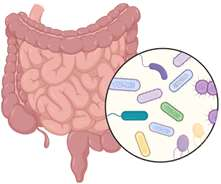Microbial method for reproducing the human urolithin metabotypes in vitro and in vivo
CSIC has isolated and characterized from the intestine of a healthy woman a novel bacteria strain that produces urolithins and developed novel gut bacterial consortia comprising the mentioned novel bacterium and other bacteria wherein the consortia produce the mix of urolithins of metabotypes A or B, respectively, either in vitro or in vivo, including the newly characterized urolithin G. The microorganism, the novel urolithin, and the method for naturally producing all the human urolithins of both metabotypes are part of a patent application assigned to CSIC.
Biotech companies and functional food or nutraceutical companies are sought for license and (or) development agreements.
An offer for Patent Licensing
Urolithins with anti-inflammatory, antioxidant, neuroprotective, and anti-aging properties
Production of Natural Urolithins Patented Bacterial Consortia Ellagic acid-rich powder or fruits Metabotype B Metabotype A Metabotype 0 Natural Urolithins Novel Urolithin G Urolithins production in the intestine A progressive cellular and mitochondrial health decline is associated with impaired muscle and neuronal function during aging. Urolithins (Uros) produced by our intestinal microbiota after consuming foods and derived products rich in the polyphenols ellagitannins and ellagic acid (pomegranates, nuts, berries, tea, tropical fruits, etc.) are beneficial metabolites with anti-inflammatory, antioxidant, anticarcinogenic, cardioprotective, neuroprotective, and anti-aging properties and clinically show to reverse muscle decline associated with aging. However, Uros production capacity and, consequently, the health effects associated with ellagitannins and ellagic acid consumption vary among individuals because not all individuals have the gut bacteria ecology needed to produce all the Uros. Based on different Uros production profiles, three human urolithin metabotypes, i.e., metabotype ‐A, metabotype ‐B, and metabotype ‐0 (or non- producers), have been described in populations worldwide. The prevalence of non-producers (%) is higher in some countries, such as the US and Brazil, than in others, such as Spain, but it is also higher in some diseases in which there is intestinal dysbiosis, such as Parkinson's disease.
The present invention relates to using enteric bacteria to produce Uros naturally. More particularly, the present invention refers to using a novel bacterial strain belonging to the Enterocloster genus, either alone or in combination with other enteric bacteria, to customize urolithin production to mimic the human metabotypes A and B in vitro and in vivo .
Main innovations and advantages
- Oral probiotic and (or) postbiotic compositions that sucessfully produce urolithins in vivo and mimic human metabotypes A and B.
- Natural production of the human urolithins of metabotypes A and B from ellagitannins and ellagic acid sources for various uses, including pharmaceutical, food, drink, and nutraceutical preparations, among others.
- The novel urolithin
- G for treating and (or) preventing diseases or reversing muscle decline associated with aging or any condition selected from muscle disease, neuromuscular disease, metabolic disorder, neurological disorder, or cancer.





